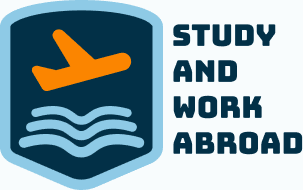Call Us:+91-9920234749, +91-9833420909 info@studyandworkabroad.in
How to Get a Co-Op Work Permit in Canada? Benefits & Process
Thinking about combining work and study in Canada? Dreaming of real-world experience while still in college? That’s where Co-Op programs in Canada shine! These programs not only give you academic credit but also allow you to build a powerful resume — even before you graduate!
But here’s the catch — to work legally during your co-op term, you’ll need a Co-Op Work Permit.
So, how do you get one? What are the benefits? And is it really worth it?
Let’s walk you through everything you need to know.
What is a Co-Op Program in Canada?
A Co-Op (Co-operative education) program is a structured method of combining classroom-based education with practical work experience.
Here’s how it works:
- You enroll in a diploma or degree program with a built-in work term.
- You get placed in a paid or unpaid job related to your field of study.
- This work experience counts toward your graduation requirements.
Popular fields offering Co-Op programs:
- Business Administration
- Computer Science & IT
- Engineering
- Hospitality & Tourism
- Healthcare & Biosciences
What is a Co-Op Work Permit?
The Co-Op Work Permit allows international students to work in a mandatory work placement as part of their academic program in Canada. It is not the same as your regular student work permit.
Here’s the key difference:
- Student Work Permit Canada: Allows 20 hours/week part-time work during study.
- Co-Op Work Permit: Specifically for full-time work during your designated co-op/internship period.
Important: You can only apply for a Co-Op Work Permit if the work experience is required for you to complete your program.
Eligibility Criteria for a Co-Op Work Permit
Wondering if you qualify? Here’s what you need:
- A valid study permit
- Enrollment in a program that requires work placement
- A letter from your college or university confirming:
- The work is essential for graduation
- The duration and nature of the work term
- The work is essential for graduation
Note: The work component must be 50% or less of your total program length.
How to Apply for a Co-Op Work Permit in Canada
Here’s a step-by-step guide:
Step 1: Gather Your Documents
- Valid Study Permit
- Co-Op Letter from your institution
- Passport
- Letter of enrollment or acceptance
Step 2: Apply Online
- Log in to the IRCC website
- Create your account or sign in
- Fill the Co-Op Work Permit application under “Work Permit (initial application or extension)”
Step 3: Upload Your Documents
- Make sure all your documents are scanned and uploaded correctly.
Step 4: Wait for Approval
Processing time varies but generally takes 2 to 3 months, so apply well in advance!
Tip: If you’re applying for your study permit for the first time and your program includes co-op, you can apply for the co-op work permit together.
Benefits of Co-Op Programs in Canada
Still wondering why students love Co-Op programs? Here’s what you gain:
1. Hands-on Industry Experience
Get exposed to real-world work environments, learn professional skills, and understand Canadian workplace culture.
2. Boosted Employability
Employers prefer graduates with work experience. A co-op program helps you build a strong resume and network.
3. Earn While You Learn
Many co-op placements are paid. You get to fund part of your education and living expenses.
4. Post-Graduation Job Offers
Many students are offered full-time roles by their co-op employers after graduation. Isn’t that the dream?
5. Smooth Path to PR
Work experience in Canada can add points to your PR (Permanent Residency) application under Express Entry.
FAQs About Co-Op Work Permit
Q: Can I work part-time outside my Co-Op job?
Yes, if your study permit allows it, you can still work up to 20 hours/week outside your co-op placement.
Q: What if my program doesn’t have a co-op?
You won’t be eligible for a co-op work permit. But you can still gain experience through part-time jobs or internships.
Q: Is it mandatory to apply separately for this work permit?
Yes, unless you apply for it along with your study permit at the beginning.
Final Thoughts
Co-Op programs are one of the smartest ways to study and work in Canada at the same time. They not only boost your academic experience but also open doors to long-term career success in Canada.
So, if you’re planning your study abroad journey, ask yourself:
- Do I want more than just a degree?
- Do I want to stand out in the job market?
- Do I want to build a life in Canada post-graduation?
If the answer is YES, then a Co-Op program is a path worth exploring.
Need Help with Co-Op Applications or Study Permits?
AVF Consultants is here to make your journey seamless. With years of experience in guiding students through every step — from choosing the right co-op program to applying for your student work permit in Canada — we’ve got your back.
Expert Guidance
University Shortlisting
Co-Op Permit Application Support
Visa & Documentation Help
Pre-departure Briefing
Ready to make your Canadian dream a reality?
Let’s get you started with the perfect Co-Op program!
Contact us today at https://studyandworkabroad.in

